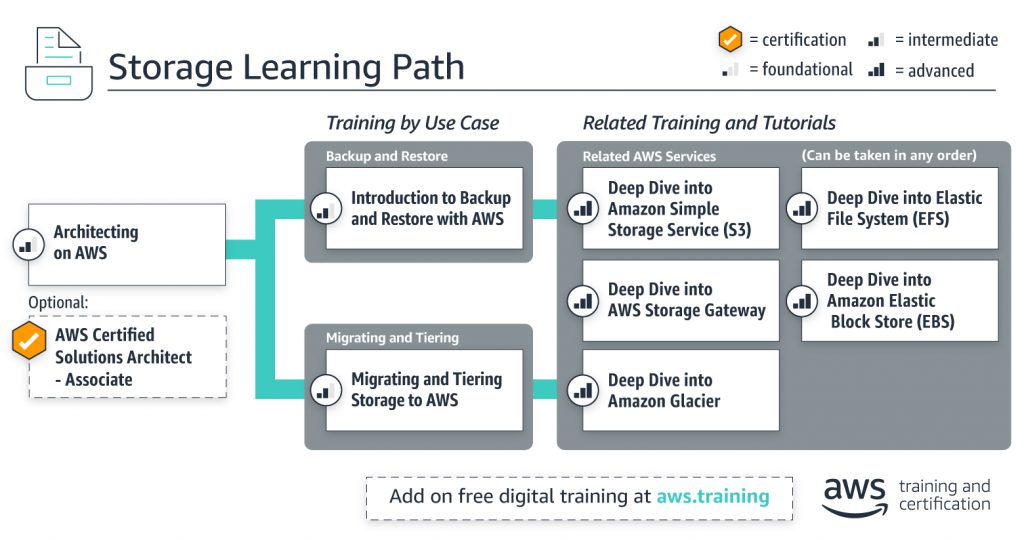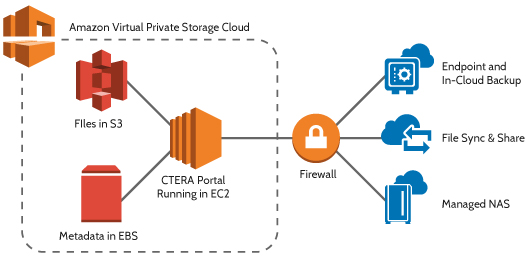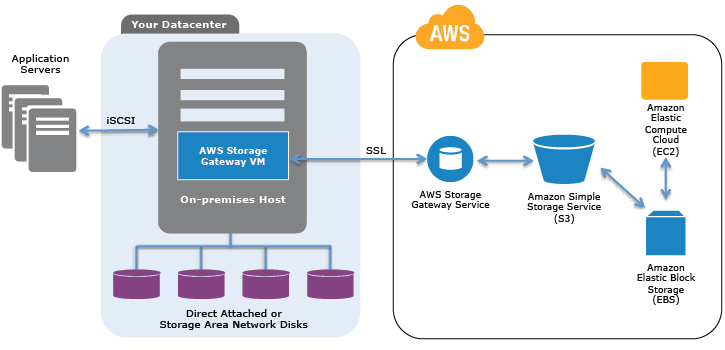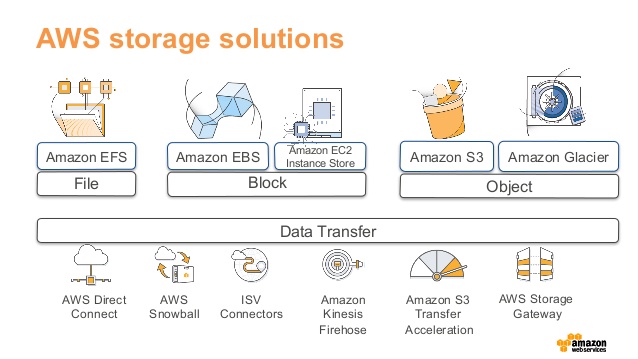
About
This path is designed for enterprise storage engineers to learn how to architect and manage highly available solutions, with a focus on AWS storage services. Progress from the fundamentals to technical deep dives to advance your AWS storage expertise and help your organization migrate to the cloud faster. This path includes classroom training with guidance from an expert and digital training modules you can take at your own pace.
Cloud Storage Service Details

Amazon Elastic Block Store
Amazon Elastic Block Store (Amazon EBS) provides highly available, consistent, low-latency block storage for Amazon EC2. It helps you tune applications with the right storage capacity, performance and cost.
EBS is designed for workloads that require persistent storage accessible by single EC2 instances. Typical use cases include relational and NoSQL databases (like Microsoft SQL Server and MySQL or Cassandra and MongoDB), Big Data analytics engines (like the Hadoop/HDFS ecosystem and Amazon EMR), stream and log processing applications (like Kafka and Splunk), and data warehousing applications (like Vertica and Teradata).
Amazon Elastic File System
Amazon Elastic File System (Amazon EFS) provides a simple, scalable, elastic file system for Linux-based workloads for use with AWS Cloud services and on-premises resources. It is built to scale on demand to petabytes without disrupting applications, growing and shrinking automatically as you add and remove files, so your applications have the storage they need – when they need it. It is designed to provide massively parallel shared access to thousands of Amazon EC2 instances, enabling your applications to achieve high levels of aggregate throughput and IOPS with consistent low latencies. Amazon EFS is well suited to support a broad spectrum of use cases from lift-and-shift enterprise applications, big data analytics, web serving and content management, application development and testing, media and entertainment workflows, database backups, and container storage.
Amazon S3

Amazon Simple Storage Service (Amazon S3) is object storage designed to store and access any type of data over the Internet.
It is secure, 99.999999999% durable, and scales past tens of trillions of objects. S3 is used for backup and recovery, tiered archive, user-driven content (like photos, videos, music and files), data lakes for Big Data analytics and data warehouse platforms, or as a foundation for serverless computing design.
Amazon FSx for Lustre
Amazon FSx for Lustre is a fully managed file system that is optimized for compute-intensive workloads, such as high performance computing, machine learning, and media data processing workflows. With Amazon FSx, you can launch and run a Lustre file system that can process massive data sets at up to hundreds of gigabytes per second of throughput, millions of IOPS, and sub-millisecond latencies.
Amazon FSx for Lustre is seamlessly integrated with Amazon S3, making it easy to link your long-term data sets with your high performance file systems to run compute-intensive workloads.
Amazon FSx for Windows File Server
Amazon FSx for Windows File Server provides a fully managed native Microsoft Windows file system so you can easily move your Windows-based applications that require file storage to AWS. Built on Windows Server, Amazon FSx provides shared file storage with the compatibility and features that your Windows-based applications rely on, including full support for the SMB protocol and Windows NTFS, Active Directory (AD) integration, and Distributed File System (DFS).
Amazon S3 Glacier & S3 Glacier Deep Archive
Amazon S3 Glacier and S3 Glacier Deep Archive are secure, durable, and extremely low-cost Amazon S3 cloud storage classes for data archiving and long-term backup.
S3 Glacier and S3 Deep Archive are solutions for customers who want low-cost storage for infrequently accessed data. It can replace tape for media and entertainment applications, and assist with compliance in highly regulated organizations like healthcare, life science, and financial services.
AWS Backup
AWS Backup is a fully managed backup service that makes it easy to centralize and automate the back up of data across AWS services in the cloud as well as on premises using the AWS Storage Gateway. Using AWS Backup, you can centrally configure backup policies and monitor backup activity for AWS resources, such as Amazon EBS volumes, Amazon RDS databases, Amazon DynamoDB tables, Amazon EFS file systems, and AWS Storage Gateway volumes.
AWS Backup provides a fully managed, policy-based backup solution, simplifying your backup management, enabling you to meet your business and regulatory backup compliance requirements.
AWS Storage Gateway

The AWS Storage Gateway is a software appliance that seamlessly links your on-premises environment to Amazon cloud storage.
It offers local storage with highly optimized connectivity to AWS Cloud storage, and helps with migration, bursting and storage tiering use cases. Replace tape automation without disrupting existing processes, supplement on-premises workloads with storage capacity on demand, or augment existing on-premises storage investments with a cloud tier.
Types Of Cloud Storage
There are three types of cloud data storage: object storage, file storage, and block storage. Each offers their own advantages and have their own use cases:
Object Storage
Applications developed in the cloud often take advantage of object storage’s vast scalablity and metadata characteristics. Object storage solutions like Amazon Simple Storage Service (S3) are ideal for building modern applications from scratch that require scale and flexibility, and can also be used to import existing data stores for analytics, backup, or archive.
File Storage
Some applications need to access shared files and require a file system. This type of storage is often supported with a Network Attached Storage (NAS) server. File storage solutions like Amazon Elastic File System (EFS) are ideal for use cases like large content repositories, development environments, media stores, or user home directories.
Block Storage
Other enterprise applications like databases or ERP systems often require dedicated, low latency storage for each host. This is analagous to direct-attached storage (DAS) or a Storage Area Network (SAN). Block-based cloud storage solutions like Amazon Elastic Block Store (EBS) are provisioned with each virtual server and offer the ultra low latency required for high performance workloads.
AWS Storage Solutions

Related Courses – Learn Online Now
AWS Cloud Developer Training – Exam 4504
AWS Certified Solutions Architect-Associate+Professional
Docker Training (DevOps) with Kubernetes and Swarm
Mastering Python – Machine Learning Training Course
CompTIA Cyber Security Analyst (CySA+) Certification
CCNA Routing & Switching Certification
Data Sciences Specialization Course
Ethical Hacking Certification Training Course | with KALI LINUX
